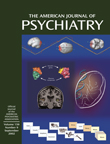Several colleagues, seeing the title, eagerly questioned me about this more than 700-page “handbook” as I lugged it around with me for a couple of weeks. For themselves and their students, they had been looking for a good source to address the conjunction of these two vast realms in daily clinical work. How might a skeptical physician best approach a deeply religious patient (or the converse)? How can practitioners respectfully enlist the power of prayer or usefully attend to the religious implications of psychosis? What if patient and physician come from mutually hostile religious backgrounds? These are the sorts of practical questions the word “handbook” seems to imply.
I had to disappoint my colleagues. This Handbook is really a reference volume on the state of academic research on the correlations between religious practice and illness prevention or disease outcome. Case presentations are rare. Occasional sensitive discussions on subjects such as the adjustment to terminal cancer, which clearly reflect the religious sensibilities of the authors, are embedded in exhaustive literature reviews.
After a promising introduction and discussion of “definitions”—for me, the most interesting part of the book—we get chapter after chapter arranged by disease category, i.e., heart disease, cancer, schizophrenia, and so on. The aggregate of the results is always suggestive, and more research is always needed.
As anything other than a reference volume, the book founders on its own assumptions. Early on, “spirituality” is defined as “the personal quest for understanding answers to ultimate questions about life, about meaning, and…the sacred” and thus essentially defined as undefinable from a scientific standpoint. “Religion,” by contrast, “is an organized system of beliefs, practices, rituals, and symbols” that fosters “responsibility to others in living together in a community.” This builds in a confounding variable—a community of shared values and mutual social support. Research on the secular community, such as David Spiegel’s work on group therapy and breast cancer outcomes, has clearly shown how strong a confounding variable community might be in such discussions.
More troubling to me, as a religious person, is that these authors regret that “higher levels of religious practice among sicker individuals,” a persistent finding across the board, “may obscure the benefits of religious practice on outcome.” This is true, of course, but misses a major point about the relationship between illness and religion. Religion is not an instrument for preventing or curing illness. Illness, on the other hand, frequently leads people to religion. Nonreligious people see this as a defense mechanism. People of faith see it as the result of a process of searching for transcendent meaning triggered by the end of the ego’s illusions of perpetual security, comfort, immortality, and omnipotence.
This brings me to the biggest problem, in my view, with the line of reasoning represented by this book. “Health” is the ego’s agenda. It should not be conflated with concepts such as doing God’s will or taking one’s proper place in a divine pattern. Our imperfect attempts to do these things may indeed promote better health outcomes, at times. At other times, as Jung was fond of pointing out, such attempts may lead to crucifixion.
The secular history of religion is a story of the assimilation, dilution, and normalization of a radical message once expressed as, “My Kingdom is not of this world.” A cultural product of present-day American behavioral science, this book renders unto the Caesar of controlled studies. In this era of meditation rooms for tired executives and departments of alternative medicine at medical schools, it fits the current pattern of assimilation and loses the Spirit of the message.

